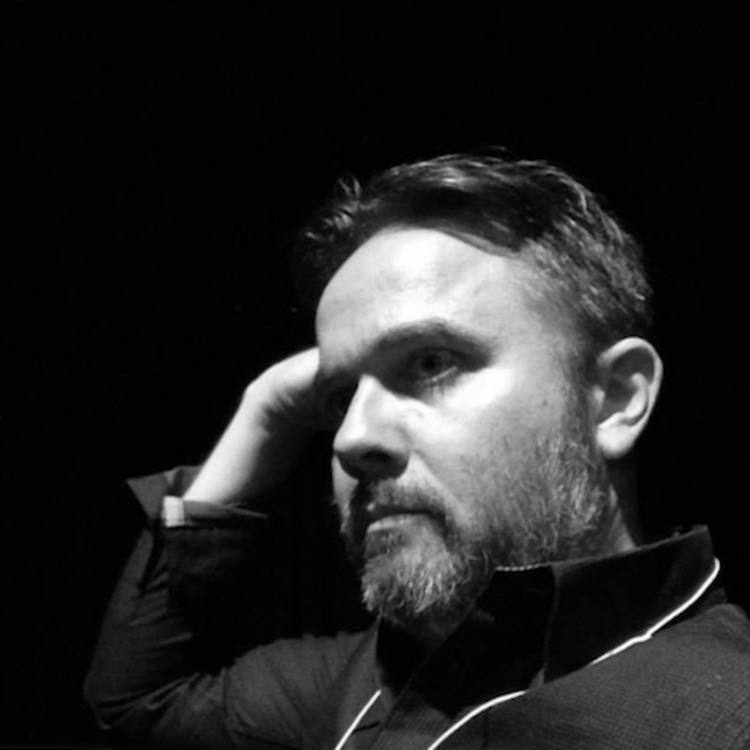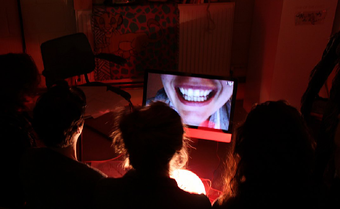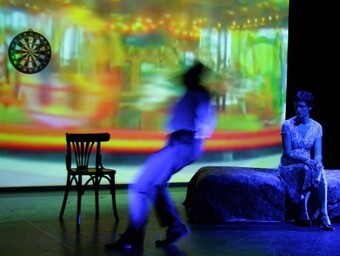Belarus, Theater, and Breaking the Zones of Silence
This six-part series explores how the work of Belarus Free Theatre changed an American expatriate's life, inspiring him to find new ways to use theater, writing, and social activism.
On 19 December 2010—nearly three months after Belarus Free Theatre's performance in Norway—many Belarusians were arrested for peacefully protesting against the controversial re-election of Alexander Lukashenko, in power since 1994. Journalists, educators, students, poets, filmmakers, and others were imprisoned during this period. One rival presidential candidate, Uładzimier Niaklajeŭ, was beaten into unconsciousness, and later hospitalized by armed men dressed in black. Mikola Statkievič, another presidential candidate who was attacked, said that their assailants were members of Belarus' special forces. Natalia Koliada, co-founder of Belarus Free Theatre and just one of the more than a thousand arrested that day, said she was threatened with rape by her prison guards in Minsk.
Unfortunately, these events did not immediately gain the spotlight within most of Europe’s international media. For many European news outlets and their readers during this time, completing one’s Christmas shopping seemed a greater priority than paying any attention to the former Soviet Republic ranked worse than Iran for press freedom, and worse than Zimbabwe for human rights. The troubles in Belarus fell on deaf ears, generating no immediate response.
Thanks in large part to the activities of Belarus Free Theatre, this icy silence has begun to thaw in recent years. Their theatrical performances, coupled with a passionate and indefatigable activism, has highlighted significant international attention on their country´s government, human rights abuses, and prevailing Orwellian silence. Their original work frequently draws upon their personal experiences with censorship, imprisonment, even death threats in their homeland, as well as topics considered "taboo" by the current Belarusian regime—alcoholism, suicide, and the disappeared. Infused with a high level of artistic excellence in their performances, the company has earned numerous international awards, and been presented in over forty-two different countries. Some of their more famous supporters include actors Jude Law and Ian McKellen, singers Mick Jagger and Sting, and playwrights Tom Stoppard and the late Harold Pinter.
"The goal is simple," they explain. "To create a genuine reaction to what’s happening: quickly, honestly, freely." With productions like Discover Love, Belarus Free Theatre hopes to convey "truths in real time."
Simple, but not necessarily easy.
In the days following the arrests in Minsk’s Independence Square on 19 December 2010, I had been living in Oslo for about two and a half years. While Belarus Free Theatre’s Koliada, co-founder Nicolai Khalezin, and manager Artsiom Zheleznyak were arrested along with the other peaceful protestors, Norway’s media attention was focused on Liu Xiaobo, the Chinese writer and human rights activist who won the Nobel Peace Prize barely a week before. Since he was serving an eleven-year prison term in his home country for the crime of "inciting subversion of state power," the government did not permit Xiaobo—or anyone in his family—to travel to Norway to accept his award. Instead, the Prize was presented to an empty chair, in absentia, while actress Liv Ullman read his essay I Have No Enemies.
I felt compelled to act, to do something, to speak up—but how? What could I, an expatriate American living in Scandinavia, do to break the zone of silence surrounding Belarus? While I was enjoying certain freedoms as a theater artist in this affluent Nordic country, my friends and colleagues elsewhere in Europe—writers, directors, journalists, and more—were being imprisoned and threatened. The Norwegian press possessed a seemingly insatiable appetite for reporting stories about persecuted human rights activists on the other side of the world; yet when those same violations (and worse) were happening closer to home, here on the continent, no one seemed to notice or wanted to listen.
It was time for me to exercise the freedoms I have, to help those who should also be free, but are not. To speak up, and do what I could to break the zone of silence.
My first action was to circulate a petition demanding the release of the members of Belarus Free Theatre, written by my friend and colleague Aaron Landsman. I sent this to everyone I knew in the international theater community, ultimately receiving more than 300 signatures from practitioners all over Europe and the United States. I forwarded a copy to the Norwegian Prime Minister, as well as the country’s King, to all the major news outlets in Norway, and included a copy of it on my company’s website.
Over the next few weeks, I produced a staged reading of Belarus Free Theatre’s Being Harold Pinter at Black Box Teater in Oslo. Adapted by Vladimir Shcherban from a number of Pinter´s more overtly political writings—including Art, Truth, and Politics, his famous acceptance speech for the 2005 Nobel Prize for Literature—our reading featured an international cast of professional actors from the United States, the United Kingdom, Australia, and Norway. Preceding the performance, representatives from the Norwegian Helsinki Committee provided the audience with updated information about the whereabouts of Belarus Free Theatre’s members, as well as what any of us could do to help all of the demonstrators arrested in Minsk.
Quickly, our reading in Oslo became part of a larger tapestry in the United States. A number of theater groups in Chicago, Portland, Minneapolis, Dallas, Los Angeles, and elsewhere began organizing their own readings of Being Harold Pinter as an expression of their solidarity with Belarus Free Theatre as well as their country’s citizens, using the democratic art form of theater to speak out against these human rights violations. After Koliada and Khalezin were released in early January 2011, they joined their actors in New York to perform this same piece as part of the Public Theater’s Under The Radar festival. The New York Times also published a feature article about Belarus Free Theatre, which helped to generate greater media attention in the United States about what is happening today in "Europe’s last dictatorship."
Eventually, local news organizations in Norway also began to cover the story. Ensemble Free Theater Norway’s blog was frequently updated with these and other international news articles, helping our audience stay current on the subject, whether they live in Norway or abroad. In addition, this activity led me to envision more steps I could take to use theater and writing to continue breaking the zones of silence surrounding Belarus, eventually culminating in my 2014-15 project, Belarusian Dream Theater.





Comments
The article is just the start of the conversation—we want to know what you think about this subject, too! HowlRound is a space for knowledge-sharing, and we welcome spirited, thoughtful, and on-topic dialogue. Find our full comments policy here